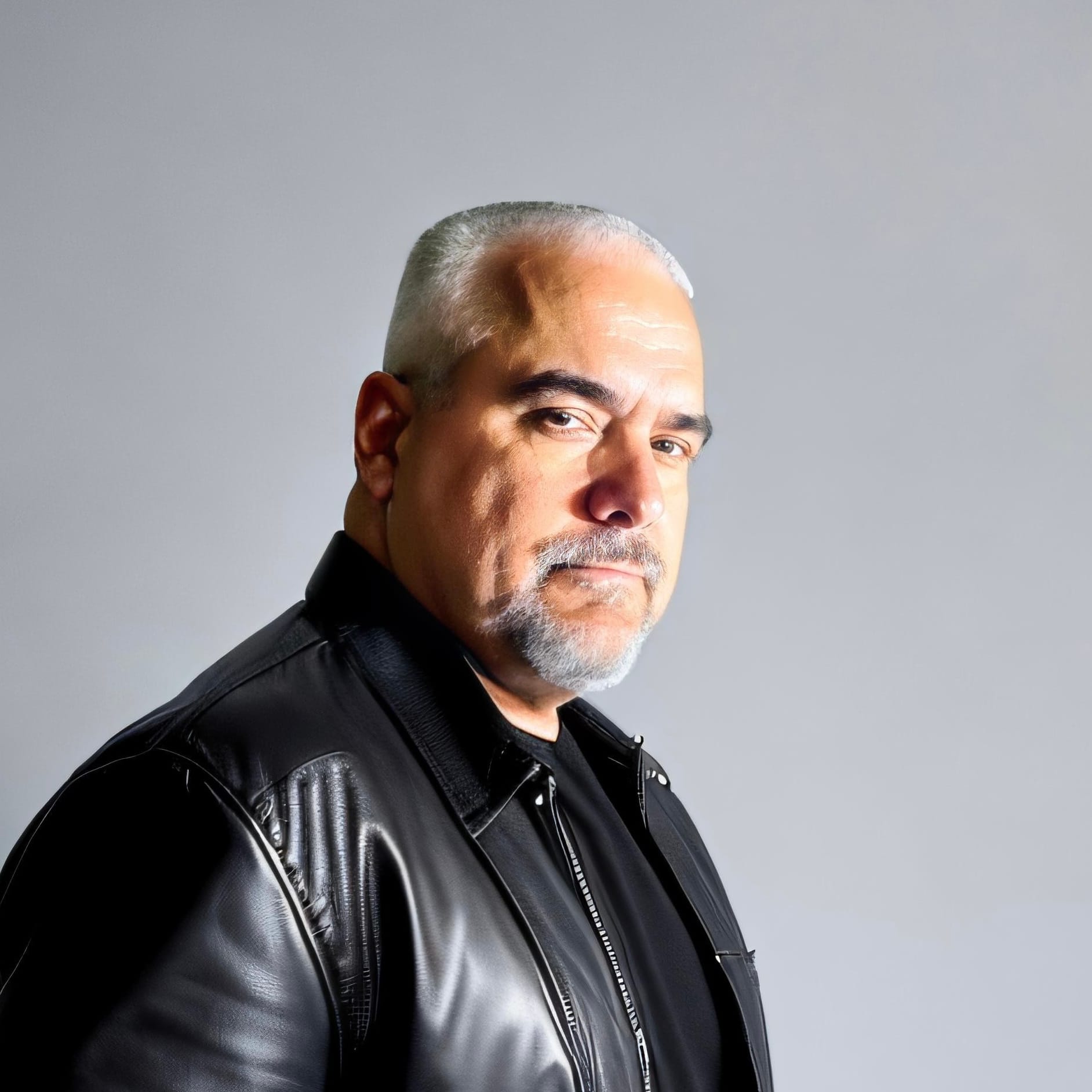
The internet is overflowing with health and wellness influencers. Scroll long enough and you’ll find someone with “Dr.” in their username promising miracle cures, secret diets, or the latest “biohack.” The problem? Not all doctors are the same — and some aren’t even medical doctors at all.
That doesn’t mean they’re bad people or that their advice is automatically wrong (although it very often is). But it does mean that you need to understand what the title “Doctor” actually represents. Some “doctors” can prescribe medication, perform surgery, and diagnose disease. Others focus on wellness or research. Some are highly regulated by national medical boards, while others operate under looser or inconsistent oversight.
One of my favorite jokes about doctors is:
“What do you call the person that came in last place in their medical school graduating class?” (Hint - Doctor).
No disrespect intended—I actually have a lot of admiration for doctors and the depth of knowledge they’re required to have. It’s impressive how they can diagnose and help patients, even when those patients struggle to explain what’s wrong. The joke is a reminder for me that we all need to play a role in our own care. This doesn’t mean you should self diagnose, it just means to be informed, ask questions, get educated. What it also doesn’t mean is that by educating yourself, you somehow know as much as someone that has spent decades of dedicated training in the field.
Key Differences to Watch For
- Scope of Practice: Only some doctors (MD, DO, DPM, DDS/DMD, OD, DVM) are trained and licensed to diagnose, prescribe, and perform surgery. Others (PhD, DC, DPT) cannot legally prescribe medication.
- Licensing and Oversight: Physicians and dentists are tightly regulated by national/state medical boards. Chiropractors, naturopaths, or psychologists may face very different (and sometimes weaker) oversight depending on location.
- Use of Title: In some fields “Doctor” is always used (medicine, dentistry), while in others it’s optional (nursing, psychology) or rare (law). Just seeing “Dr.” in a bio doesn’t tell you much without context.
Know Who You’re Reading
The point here isn’t to dismiss any particular group. Chiropractors help people manage pain. Psychologists provide critical mental health care. PhDs produce the research that drives medical breakthroughs. Naturopaths may give useful wellness advice.
But when you see someone calling themselves “Doctor” online, remember:
- The title doesn’t always mean physician.
- The training and authority behind it can be radically different.
- You need to check whether their expertise matches the advice they’re giving.
So the next time you read a bold health claim from “Dr. So-and-So,” pause and ask: What kind of doctor are they? Do they have the training and license to speak on this subject?
Here’s a guide to help you tell the difference.
🩺 Medical Doctors
MD (Doctor of Medicine)
• Training: 4 yrs med school + 3–7 yrs residency
• Scope: Full medical care, surgery, diagnostics
• Prescribing: Full prescribing rights
• Oversight: National boards (USMLE), state medical boards
• Use of “Doctor”: Always
DO (Doctor of Osteopathic Medicine)
• Training: Same as MD + osteopathic training
• Scope: Full medical care, OMT, surgery
• Prescribing: Full prescribing rights
• Oversight: National boards (COMLEX/USMLE), state medical boards
• Use of “Doctor”: Always
🦷👁️👣🐾 Specialized Clinical
DDS/DMD (Dentistry)
• Training: 4 yrs dental school
• Scope: Oral health, surgery, procedures
• Prescribing: Limited to dental medications
• Oversight: National/state dental boards
• Use of “Doctor”: Always
DPM (Podiatry)
• Training: 4 yrs podiatry school + residency
• Scope: Foot/ankle care, surgery
• Prescribing: Within scope
• Oversight: National/state podiatry boards
• Use of “Doctor”: Always
OD (Optometry)
• Training: 4 yrs optometry school
• Scope: Eye exams, vision care, some disease management
• Prescribing: Limited to eye medications
• Oversight: National/state optometry boards
• Use of “Doctor”: Always
DVM (Veterinary)
• Training: 4 yrs veterinary school
• Scope: Animal care, surgery, diagnostics
• Prescribing: For animals
• Oversight: National/state veterinary boards
• Use of “Doctor”: Always
🌿 Alternative & Complementary Health
DC (Chiropractic)
• Training: 4 yrs chiropractic program
• Scope: Musculoskeletal/spine adjustments
• Prescribing: None
• Oversight: State chiropractic boards
• Use of “Doctor”: Always
ND/NMD (Naturopathic)
• Training: 4 yrs naturopathic program (varies by state)
• Scope: Holistic/natural medicine
• Prescribing: Sometimes (state-dependent)
• Oversight: State-regulated (not everywhere)
• Use of “Doctor”: Sometimes
💊 Allied Health & Nursing
DPT (Physical Therapy)
• Training: 3 yrs doctoral PT program
• Scope: Rehab, movement therapy, pain management
• Prescribing: None
• Oversight: State PT boards
• Use of “Doctor”: Sometimes
DNP (Doctor of Nursing Practice)
• Training: 3–4 yrs advanced nursing doctorate
• Scope: Advanced practice, clinical leadership
• Prescribing: Sometimes (NPs prescribe in many states)
• Oversight: State nursing boards
• Use of “Doctor”: Sometimes
PharmD (Pharmacy)
• Training: 4 yrs pharmacy program
• Scope: Dispense & advise on medications
• Prescribing: Sometimes (limited prescribing in some states)
• Oversight: State pharmacy boards
• Use of “Doctor”: Sometimes
🎓 Academic & Professional
PsyD (Psychology)
• Training: 4–6 yrs doctoral psychology program
• Scope: Therapy, assessments
• Prescribing: Sometimes (only in certain states w/ extra training)
• Oversight: State psychology boards
• Use of “Doctor”: Sometimes
PhD (Research/Academia)
• Training: 4–8 yrs research doctorate
• Scope: Research, teaching
• Prescribing: None
• Oversight: Academic institutions (not medical boards)
• Use of “Doctor”: Yes, but not clinical
EdD (Education)
• Training: 3–6 yrs education doctorate
• Scope: Teaching, leadership, policy
• Prescribing: None
• Oversight: Academic/professional oversight
• Use of “Doctor”: Sometimes
JD (Law)
• Training: 3 yrs law school
• Scope: Legal practice
• Prescribing: None
• Oversight: State bar exams
• Use of “Doctor”: Rarely
DrPH (Public Health)
• Training: 3–5 yrs doctoral program
• Scope: Public health policy, leadership
• Prescribing: None
• Oversight: Academic/professional oversight
• Use of “Doctor”: Sometimes
Please note there may be errors here (please let me know) but the key thing to take away is that while many of these roles above can use the term "Doctor" there can be a huge difference in training, oversight, scope and what they can legally do.
How to Spot Red Flags in Health & Wellness Content
- They Sell the Cure
- Be cautious if the influencer is pushing a product or supplement they directly profit from. Education is one thing, but when the science always points back to their online store, be skeptical.
- Cherry-Picking Science
- Real experts acknowledge nuance. If someone only highlights studies that support their viewpoint and ignores conflicting evidence, they may be more interested in persuasion than accuracy.
- Too Good to Be True
- Promises of quick fixes (“This one food will melt fat overnight”) or miracle cures are classic red flags. Medicine is complex; real experts rarely speak in absolutes.
- Overstepping Their Specialty
- A dentist giving heart health advice, or a chiropractor recommending treatments for cancer? That’s a sign they’re outside their scope of expertise. Stick to experts speaking in their trained domain.
- Fear-Based Messaging
- Content that leans on scaring you — “doctors don’t want you to know this,” “big pharma is hiding the truth” — often signals marketing, not medicine.
- No Room for Questions
- The best experts welcome questions, debate, and evolving science. If someone shuts down discussion or claims they have the “only truth,” that’s a problem.
Demand transparency & receipts
Titles can be confusing, and “Doctor” means different things in different contexts. That’s why it’s so important to check both what kind of doctor someone is and how they’re communicating information.
The best health communicators — whether MDs, PhDs, or public health leaders — tend to:
- Be transparent about their training and specialty.
- Back up their claims with solid evidence (multiple citations etc).
- Admit uncertainty where it exists.
And here is that clip from Spies Like Us I promised.
(Side note, I actually took a date to see the movie - bad choice)
I’d love to hear your thoughts, please leave a comment!

